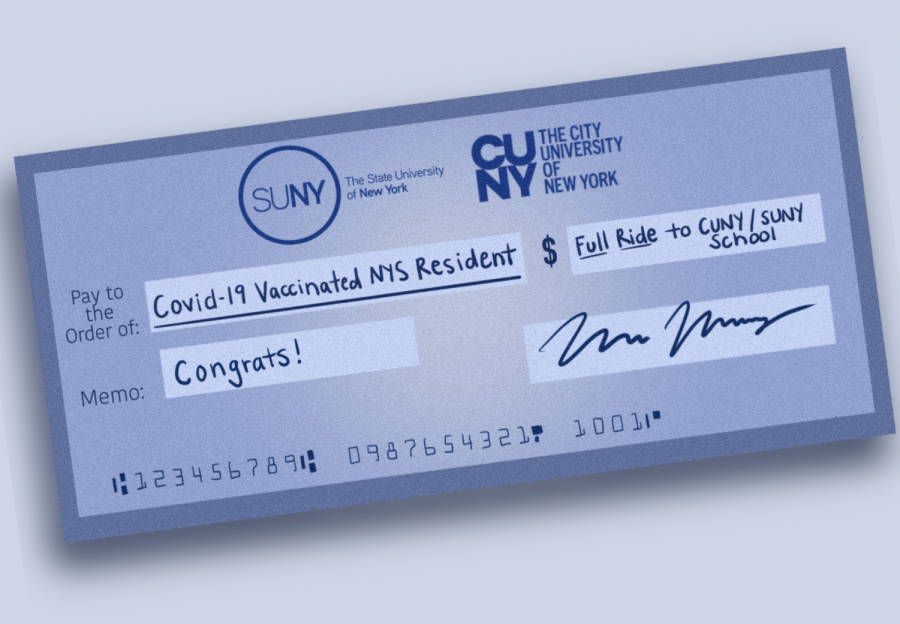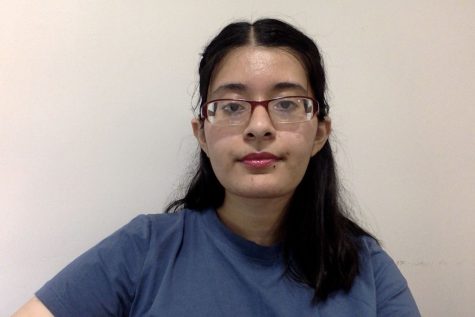College scholarships aren’t the most effective way to vaccinate young New Yorkers
June 17, 2021
To increase COVID-19 vaccinations among young New Yorkers, New York Gov. Andrew Cuomo introduced the “Get a Shot to Make Your Future” campaign. Despite its advantages, it won’t have a great long-term impact.
Those between the ages of 12 and 17 can enter a lottery to win a full-ride scholarship, including tuition and dorms, to any New York city or state public college or university. A total of 50 scholarships will be awarded, with 10 students chosen every week.
This incentive provides multiple students with a free college education and with the COVID-19 pandemic leaving many families with a lack of stable income, this can be a great help. For students struggling with making college decisions during quarantine, winning the scholarship could take away some of that burden.
Yet, the scholarship has its issues starting with the age range. Expecting students, or parents of students, as young as 12 years old to be interested in a college scholarship when they are still in middle school is unrealistic, unless they are from a low-income family or are certain they will not be attending an out-of-state college.
Compared to high school students who are more likely to be working on college applications, a middle schooler has years until they’re at that stage. Therefore, awarding the scholarship to a younger student could potentially be a waste if they decide to attend an out-of-state college or cannot dorm.
For these incentives to work, it’s important to understand the concerns of parents refusing to vaccinate their children. If a minor has not been vaccinated, there’s a chance their parents haven’t been either, as parental consent in New York state is required for minors to receive a vaccination.
According to the Kaiser Family Foundation, a nonprofit organization focused on national health issues, people of color especially cannot afford time off of work or don’t want the COVID-19 side effects to hinder their daily life.
While a college scholarship can be beneficial, its benefits may not be good enough for parents who do not trust the COVID-19 vaccine and its side effects.
Students from low-income families who will be attending college soon can profit from this, but the chances of someone in this demographic being awarded is lowered with the age range and lack of specifics like family income and race relating to who is eligible.
A free college education can be a good incentive for parents concerned about tuition rates but younger students may not have the same concerns. With the COVID-19 pandemic slowly coming to an end, many teens are looking to enjoy the summertime with friends.
Using incentives such as tickets to amusement parks or concerts would be a better option for younger students who won’t be applying to colleges anytime soon. However, finding incentives for parents may not be the only solution to vaccinating more young individuals.
While incentives are a good way to encourage people to get the vaccine, it’s also important to emphasize the consequences of not getting the vaccine. Many are hesitant to vaccinate themselves due to a lack of education on the COVID-19 vaccine.
Although a free college education seems like a beneficial long-term motive for young individuals, it isn’t the right incentive for many that have chosen to refuse the vaccine.








